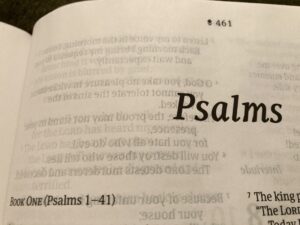
Ghosting on Bible pages
This effect, although an inherent characteristic of the paper’s thinness, can prove highly distracting for some readers, impeding their ability to concentrate on the current page’s content. In contrast, cheaper Bibles, particularly those with paperback covers, typically utilize thicker, more opaque paper that effectively eliminates the issue of ghosting altogether.
While paperback Bibles offer convenience and affordability, their durability may sometimes fall short of expectations. The lightweight construction of paperback covers and bindings renders them susceptible to wear and tear, especially with frequent handling and transportation. Over time, the covers of paperback books may become creased, torn, or otherwise damaged, compromising their aesthetic appeal and structural integrity. The adhesive used in binding paperback books may weaken, leading to pages loosening or even detaching from the spine, resulting in them getting lost.
Paperback Bibles are designed to be inexpensive and thus may not withstand heavy use or rough treatment as effectively as their more expensive counterparts. However, if the ghosting effect often seen in more expensive bibles featuring thin sheets of paper, is a distraction to you, try a simple paperback Bible. Most paperback Bibles cost less than $10 and many even less than $5 new. But be aware that it may not last a long time before you have to buy another.
